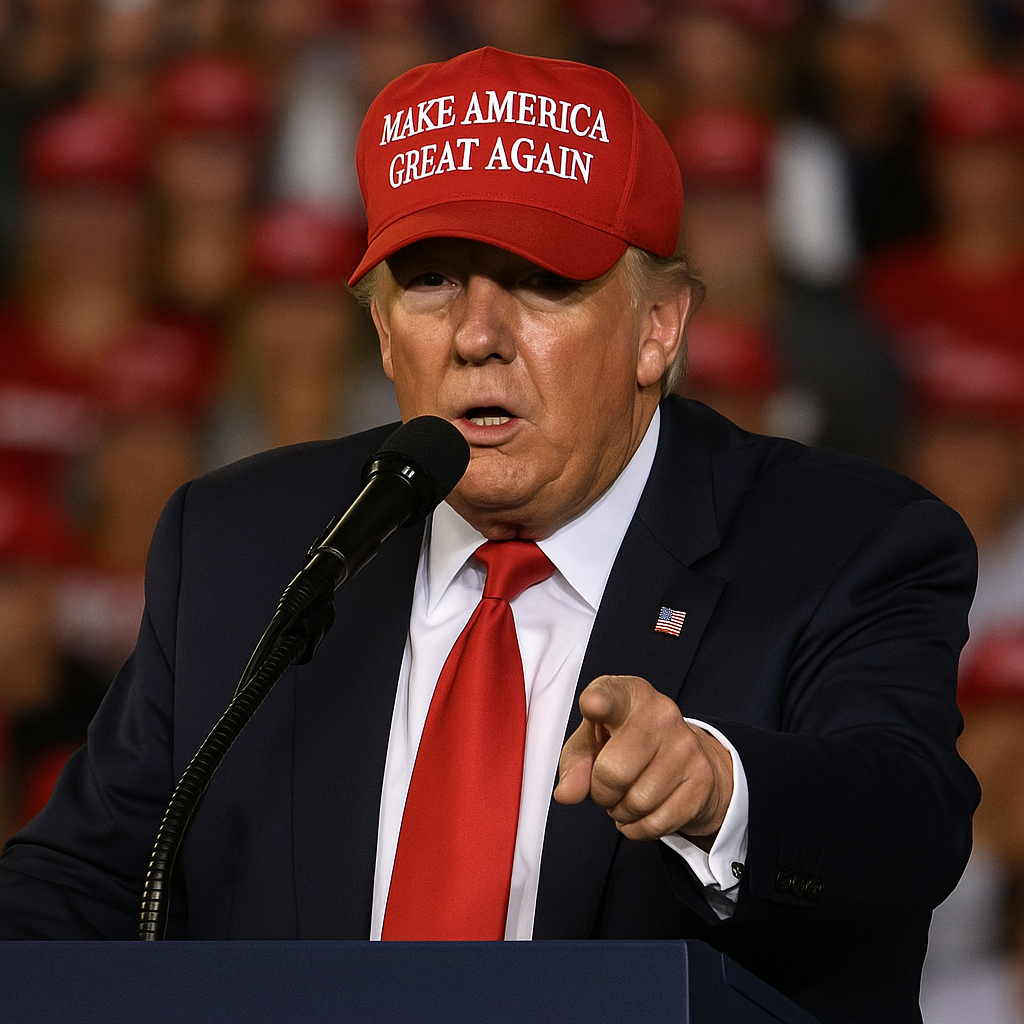A political storm is brewing in America — not between Democrats and Republicans, but within the heart of the Republican Party itself. The latest front in the internal war? The growing rebellion among key conservative figures against what they see as blind loyalty to Israel and the dangerous march toward a wider war with Iran.
At the center of this revolt is none other than Steve Bannon — the controversial former Trump advisor, strategist, and media firebrand. Never known for subtlety, Bannon has come out swinging, demanding that the U.S. resist being dragged into yet another Middle Eastern war, this time on behalf of Israel. And he’s not alone.
While Bannon has stopped short of condemning Israel’s actions in moral terms — he still claims to be a “big supporter” of the Jewish state — his critique cuts deep in a different way. He argues that Washington’s current trajectory, following Tel Aviv into escalating military aggression, is a direct betrayal of American national interest. And in MAGA-world, few things are more sacred than “America First.”
This line of attack may be more dangerous to Donald Trump and his pro-Israel allies than outright condemnation. By framing Israel’s war against Iran as a foreign conflict that endangers U.S. lives and resources, Bannon is tapping into a powerful vein of conservative populism that opposes “forever wars” and global entanglements.
“There is no ‘America First’ in blindly supporting ‘Israel First,’” Bannon implies — and increasingly, others in the conservative camp agree.
Bannon, Carlson, and the Growing MAGA Split
Joining Bannon in this ideological rebellion is right-wing media heavyweight Tucker Carlson. Known for his massive following and sharp attacks, Carlson recently published a post on X (formerly Twitter) calling out fellow conservatives — including Sean Hannity, Mark Levin, Rupert Murdoch, Ike Perlmutter, and Miriam Adelson — for pushing Trump to escalate U.S. involvement in the Israel-Iran war.
Carlson framed the political battle in moral terms: “The divide is between warmongers and peacemakers.” He warned that these figures were pushing America toward war under the guise of loyalty to Israel, and that Americans deserve to know exactly who is calling for war.
Representative Marjorie Taylor Greene also weighed in, declaring that opposing U.S. involvement in yet another overseas conflict is “not antisemitic,” but rather “rational and loving toward all people.” She reminded followers that Americans voted for Trump because he promised to end wars, not start new ones.
Israel’s War, America’s Fight?
While Trump’s messaging on the Iran conflict has been muddled — at times denying involvement, at other times boasting of control over Iranian skies — Bannon and his allies say the truth is obvious: the U.S. is already an “active combatant,” propping up Israel with air defenses, logistics, and political cover.
Bannon also warned that targeting Iranian nuclear sites, like Fordow, could constitute a war crime. The Geneva Conventions forbid such strikes, and even former IAEA chief Mohamed ElBaradei has publicly criticized Western officials for dismissing the risks.
As the conflict intensifies, the MAGA movement appears to be fracturing along critical lines. On one side are staunch Zionists who see Israel’s interests as aligned with America’s. On the other, a growing cohort of nationalists who argue that the U.S. must stop fighting other people’s wars.
This is more than a policy disagreement — it’s a clash over the soul and future of the MAGA movement. Bannon sees the original MAGA ethos — rooted in non-interventionism, economic nationalism, and cultural populism — as under threat from a war-hungry elite, including members of the so-called “Israel lobby.”
Follow the Money and Influence
Bannon’s rebellion highlights the enormous influence wielded by pro-Israel billionaires like Miriam Adelson, whose political donations to Trump have totaled over $180 million across recent campaigns. Adelson’s late husband, Sheldon, was an unabashed advocate of Israeli supremacy and one of the Republican Party’s biggest financial backers.
Others named — Perlmutter, Murdoch, Hannity, and Levin — represent a mix of Jewish and Christian Zionists united by their support for Israel’s hardline policies. The criticism isn’t about religion — it’s about influence, loyalty, and what some see as sacrificing U.S. interests for the sake of a foreign state.
This moment, as Bannon and Carlson see it, is about choosing: should America serve its own people, or continue to act as Israel’s military enforcer?
A Crossroads for Trump — and America
Despite being the face of MAGA, Trump is now in a precarious position. If he doubles down on support for Israel’s war against Iran, he risks alienating parts of his base that once loved him for his anti-war rhetoric. But if he resists the pressure, he may face backlash from his most powerful donors and media allies.
This is the civil war inside MAGA — one not just of personalities, but of direction. Will the movement continue to serve nationalist principles, or be reduced to a vehicle for foreign entanglements?
As Israel presses forward and tensions rise, the American right may be forced to confront a painful truth: endless war and “America First” cannot coexist.
For now, the outcome remains uncertain. But one thing is clear — this isn’t just a debate about Iran or Israel. It’s about who really rules Washington: the people, or those who whisper in the ears of presidents.
Republished under fair use from RT. Original article by Tarik Cyril Amar, a historian specializing in Eastern Europe and global politics. Read more at tarikcyrilamar.substack.com or follow him on X @tarikcyrilamar.
By Tarik Cyril Amar

